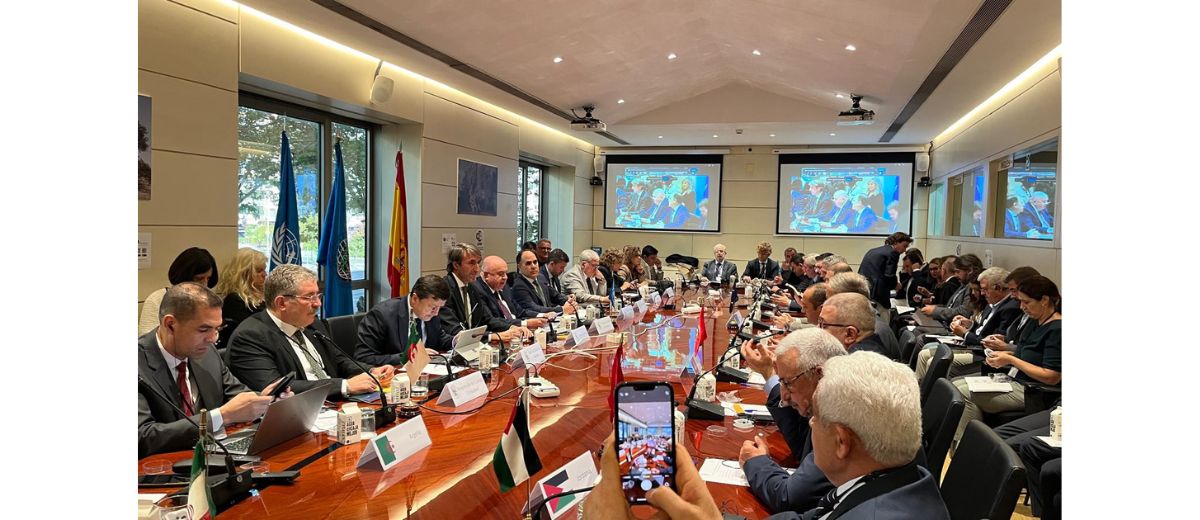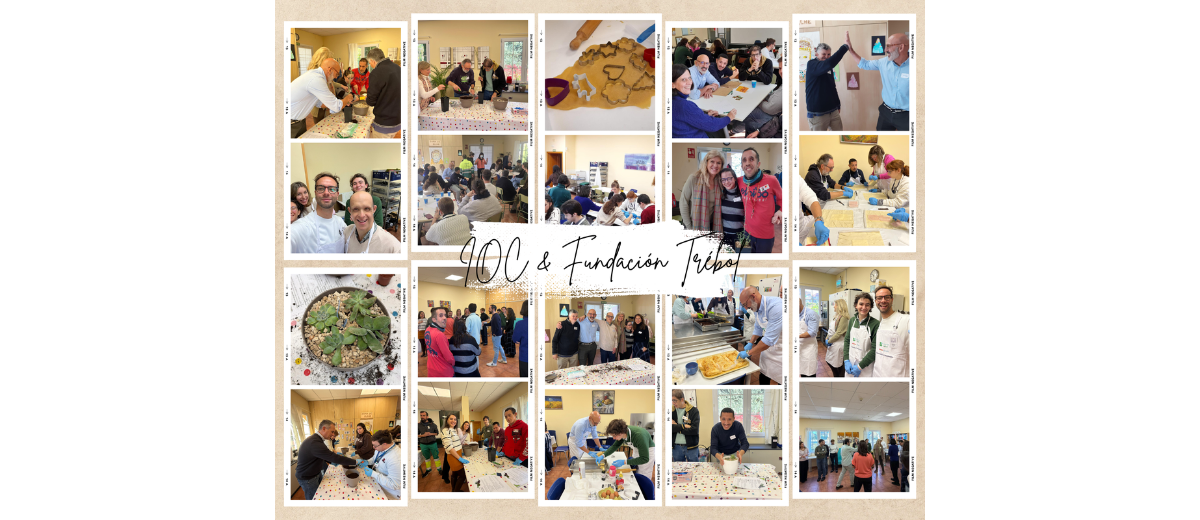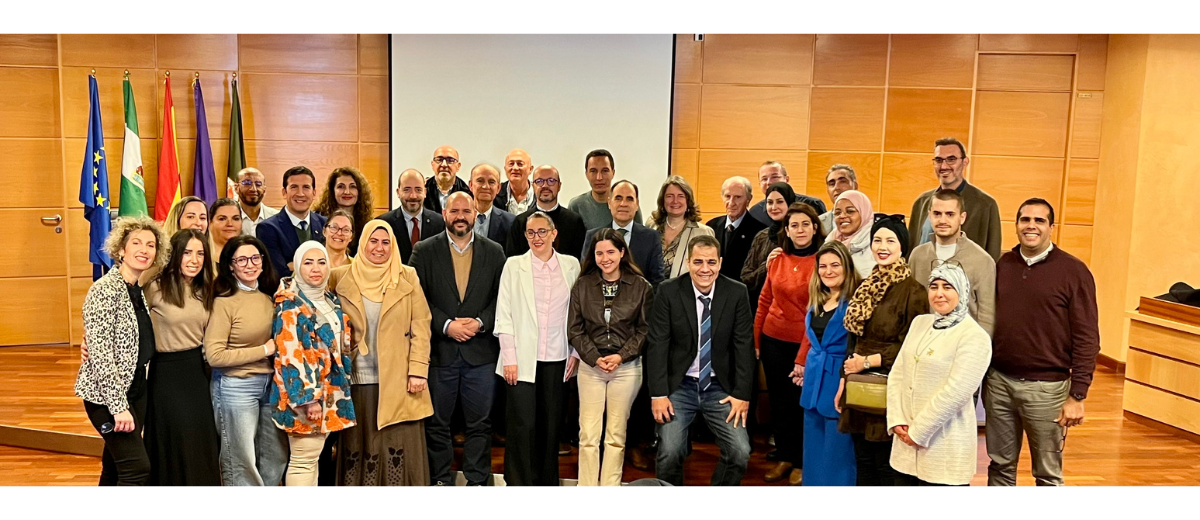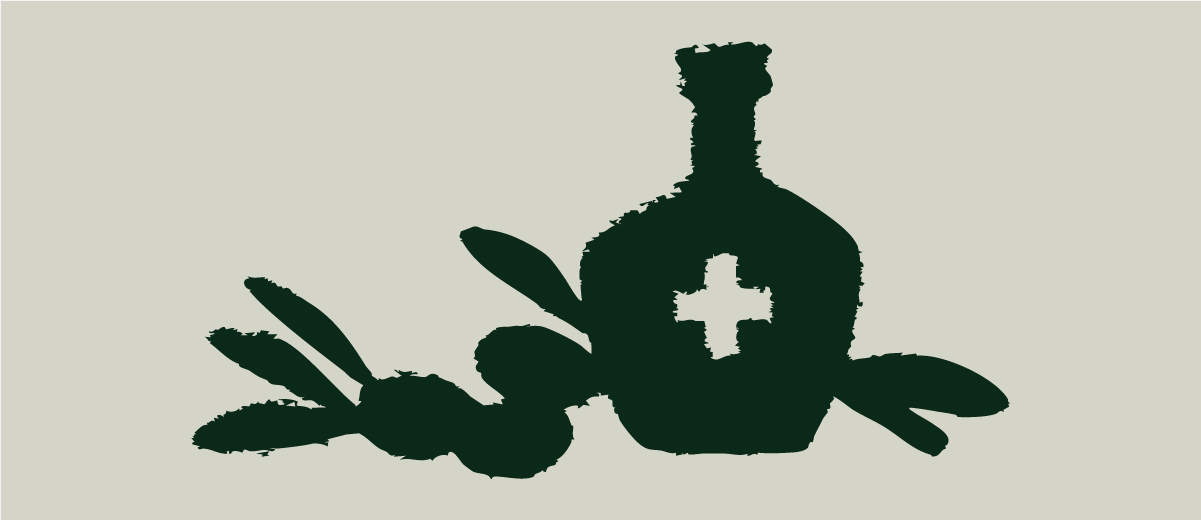Olive sector meets in Madrid to address current and future challenges as 2024/25 crop year sees record-breaking production
With global olive oil production reaching an estimated all-time high of 3.575 million tonnes—5% above the previous record—and table olive output hitting 3.318 million tonnes, stakeholders from across the olive value chain met at IOC headquarters to examine current market trends, address ongoing challenges, and chart a course for a sustainable and resilient future.
The International Olive Council (IOC) hosted the 65th meeting of its Advisory Committee (AC) on Olive Oil and Table Olives at its headquarters in Madrid on Tuesday 28 October. As a key platform for dialogue between public and private stakeholders in the olive sector, the AC brought together around 60 producer, industry, trader and consumer representatives from both producing and importing countries to discuss the current state of the sector, strategic priorities and future challenges.
Opening the session, IOC Executive Director Jaime Lillo welcomed all Advisory Committee members and observers from South Africa, Brazil and the United States. He presented provisional figures for the 2024/25 crop year, pointing to a historic global record of 3.575 million tonnes of olive oil and 3.318 million tonnes of table olives—a recovery following several underperforming harvests. The current olive oil production exceeds the previous record from 2021/22 by 5%.
Mr Lillo noted that this year’s price decline has not returned to the lower levels seen in 2021/22, thanks to a robust recovery in consumption and record-breaking olive oil exports, which reached 1.3 million tonnes—a 27% increase compared to the previous crop year. Around 40% of olive oil production is now exported, with strong demand growth in import markets such as the United States, Canada, Australia and China.
He emphasised the importance of harmonised international standards to facilitate trade, remove barriers and protect consumer rights. He also underlined the growing recognition of the health benefits of olive oil, a key driver of post-pandemic demand growth.
In addition to quality and trade, the Executive Director highlighted the IOC’s ongoing efforts to promote the role of olive cultivation in environmental sustainability and the fight against climate change, notably through the olive tree’s capacity for carbon sequestration. He stressed the need for a clear and unified message on the sector’s contribution to sustainable agriculture and the Mediterranean way of life.
Looking ahead, Mr Lillo reminded participants that World Olive Day, officially recognised by UNESCO, will be celebrated this year on 20 November in Córdoba, and is expected to bring together agriculture ministers from both member and non-member countries. He encouraged AC representatives to promote high-level participation to deliver a strong message of international unity and shared commitment to the olive sector.
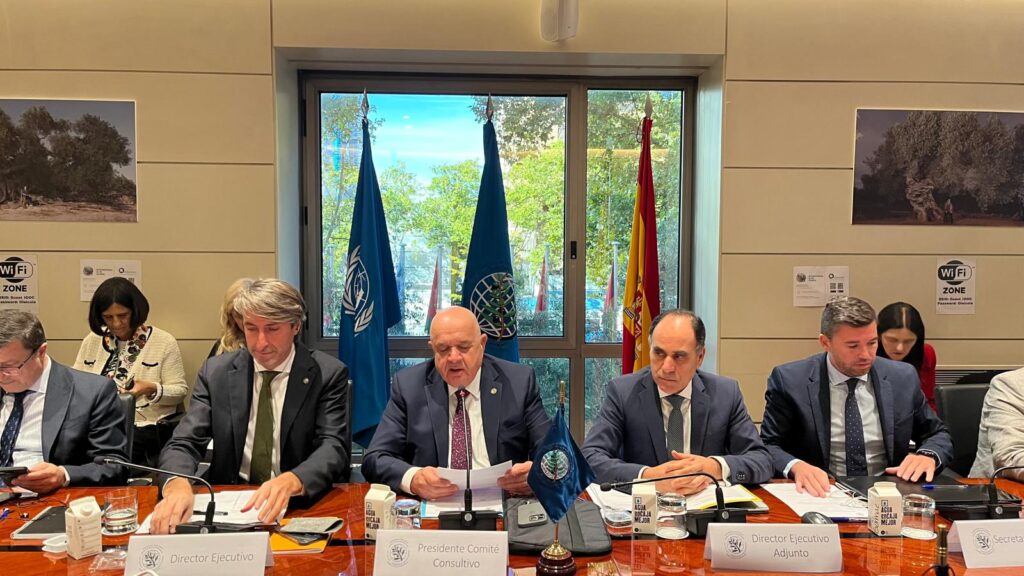 In his address, Advisory Committee Chair Abdessalem Loued (Tunisia) underlined the fact that olive oil accounts for just 2% of global edible oil consumption. He called for a more balanced and equitable relationship across all stakeholders of the olive oil value chain. He commended the work of the IOC Executive Secretariat and urged Advisory Committee members to continue working in solidarity to defend the product and dispel misinformation.
In his address, Advisory Committee Chair Abdessalem Loued (Tunisia) underlined the fact that olive oil accounts for just 2% of global edible oil consumption. He called for a more balanced and equitable relationship across all stakeholders of the olive oil value chain. He commended the work of the IOC Executive Secretariat and urged Advisory Committee members to continue working in solidarity to defend the product and dispel misinformation.
“The olive tree only bears fruit through justice,” he said, “and its oil shines only when it is shared.”
IOC Deputy Executive Director for Operational Affairs Abderraouf Laajimi reiterated the Council’s commitment to this forum of constructive dialogue with the private sector. He identified sustainability, planetary and human health, and market development as the defining challenges of the sector. Among the key initiatives he highlighted were the development of a carbon balance calculator for olive groves, support for germplasm banks, and the organisation of capacity-building courses to counter the effects of climate change on olive biodiversity. He also noted progress on the World Catalogue of Olive Varieties, along with doctoral and master’s scholarships and technical assistance to member countries.
In terms of outreach, Mr Laajimi pointed to the expansion of the IOC’s designed to support evidence-based policymaking. He also underscored enhanced promotional efforts, particularly in Brazil, now the second-largest importer of olive oil worldwide. He further highlighted the Executive Secretariat’s work in standardisation and research, training for leaders of sensory analysis tasting panels, and continued efforts in physico-chemical and organoleptic analysis.
The meeting served as a platform to follow up on these and other ongoing initiatives, particularly in the areas of quality control, trade facilitation, sustainability and digital transformation. The outcomes of the Advisory Committee’s discussions will be reported to the IOC Council of Members during its upcoming session in November.
This year, the Advisory Committee is chaired by Abdessalem Loued (Tunisia), with Genaro Siccolo (Italy) and Mohammed Belasla (Algeria) serving as Vice-Chairs.
Representatives from the following IOC member countries took part in the meeting:
Albania, Algeria, Argentina, Saudi Arabia, Egypt, Georgia, Iran, Jordan, Lebanon, Libya, Morocco, Montenegro, Palestine, Tunisia, Türkiye, Uruguay, and the European Union.
The Advisory Committee continues to play a pivotal role in ensuring that the perspectives of all sector stakeholders are reflected in the work of the Organisation, and in advancing a sustainable, inclusive and globally dynamic olive sector.
